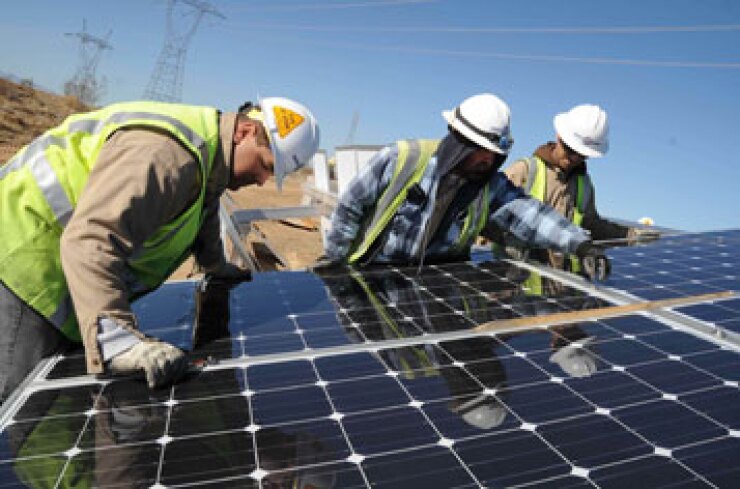SunPower is tapping the securitization market for $400 million. The transaction, which consists of a single tranche of notes with a preliminary A rating from Kroll Bond Rating Agency, is backed entirely by leases to residential customers.
Leases represent a decreasing portion of SunPower’s residential business, as customers are increasingly opting to purchase photovoltaic installations, typically obtaining a loan. In the third quarter of 2018, 68% of U.S. residential shipments were financed with loans and just 32% with leases, the company disclosed last month. Financing leases is more complicated, however.
Sunpower initially obtains funding with the help of investors that want to take advantage of the tax credit for these systems. It creates project companies, selling shares to investors and using proceeds to construct and install systems. These investors are then allowed to use the tax credit for a specified period of time (typically less time than the systems are leased).
The new transaction, called SunStrong 2018-1 Issuer, is secured by SunPower’s equity interests in 13 separate project companies with an aggregate portfolio of 37,568 leases according to Kroll. That means investors in the notes only receive the cash flow from the leases associated with these shares, which is net of not just administrative and insurance expenses but any distributions to the tax equity investors.

So while the leases held by the 13 project companies have discounted payments of approximately $644.4 million, investors in the securitization are only entitled to some $586 million.
The weighted average original tenor of the lease agreements is 240 months and the weighted average remaining term of the agreements is 207 months. The weighted average FICO of the is 753. SunPower has only leasing solar panels to residential customers since 2011, but the performance of its portfolio has been “exceptional,” according to Kroll, with average delinquencies as a percentage of total billings for receivables more than 120 days past due at 0.26%.
In addition to the credit quality of the assets, the notes being issued benefit from credit enhancement in the form of excess spread, an interest reserve account and a supplemental reserve account, per Kroll. Proceeds deposited in the supplemental reserve account will be used to fund the replacement of active inverters in the portfolio that fail over time,
To the extent the aggregate principal balance of the nNotes is unpaid after the anticipated repayment date of November 2028, the interest rate will step by at least 5% per year. (This step-up interest is subordinate to the original interest; moreover, any unpaid step up interest in any collection period will not be capitalized, or added to the balance of the notes.)





